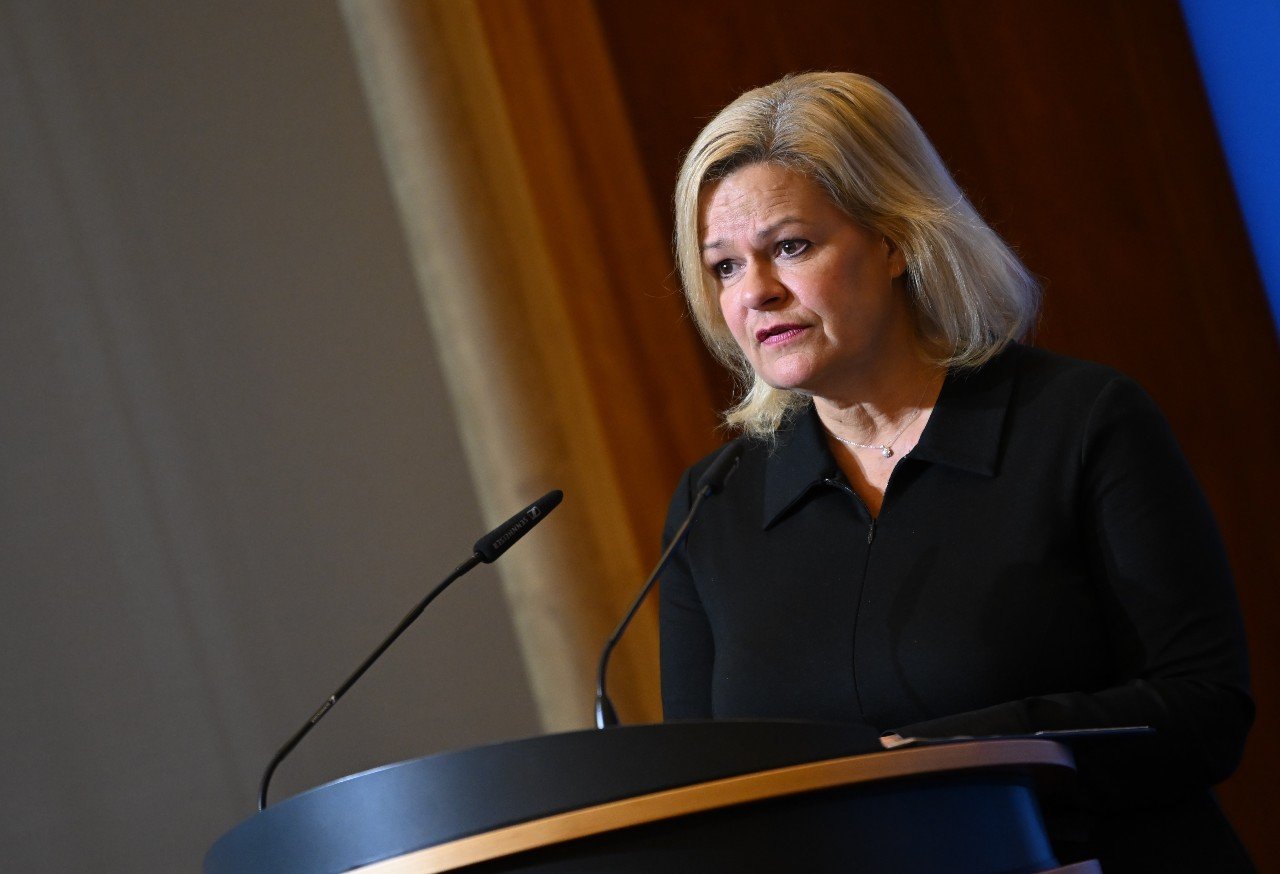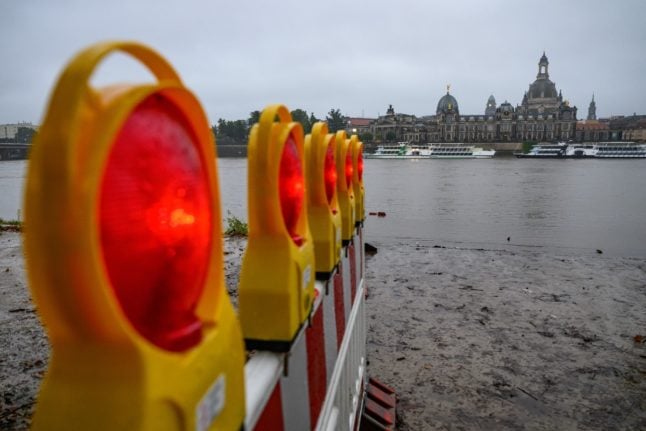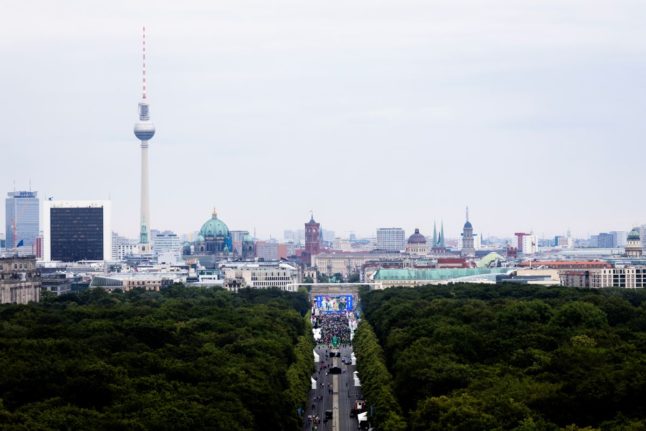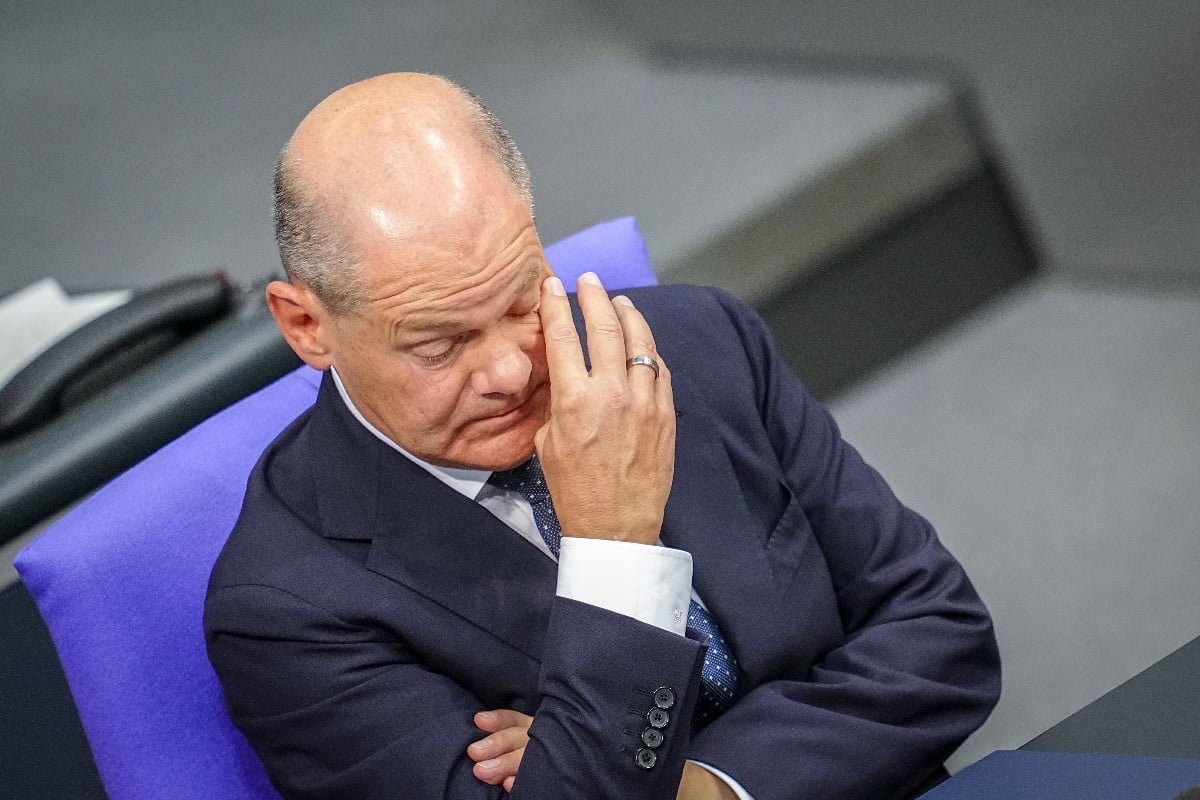Protective measures erected in Dresden amid rising water levels
As Storm Boris wreaks havoc across parts of central and eastern Europe, water levels are slowly rising in Germany, newswire DPA reported.
Mobile protective walls are being put up in Dresden to protect the old town from rising floodwaters.
The State Flood Centre reported a water level on the River Elbe of 5.54 meters on Monday morning, triggering the second level of a four stage alarm. It is expected to rise to 6 metres (alarm level 3) throughout the day. The Elbe’s normal level is 2 metres in Dresden and it was 9.40 metres during the 2002 flooding.
Meanwhile, the flooding situation in Bavaria remains tense, with more rain forecast.
Experts are keeping an eye on the water levels of the Danube near Passau, the Vils near Vilshofen and the Isar near Munich.
The German Weather Service (DWD) is expecting continuous rain from the Alps to the foothills until Tuesday.
The situation is worse in neighbouring countries. Since Thursday, large swathes of Austria, the Czech Republic, Hungary, Romania and Slovakia have been hit by high winds and unusually heavy rainfall. Parts of Austria were declared a disaster zone on Sunday.
IN PICTURES: How devastating floods turned Austria into a ‘disaster zone’
German minister defends border controls against criticism
In view of considerable concerns in border regions about controls that will begin on Monday at further German border sections, Minister of the Interior Nancy Faeser (SPD) has promised flexibility.
In response to criticism from the affected regions and neighbouring countries she said in Berlin that the aim is “that people in the border regions, commuters, trade and business are affected as little as possible by the controls”.
“We want to continue to push back irregular migration, stop people smugglers, put a stop to criminals and identify and stop Islamists at an early stage,” Faeser said, justifying the controls, which now also affect the borders with the Benelux countries, Denmark and France. This would also make it possible to “effectively reject” people who wanted to enter the country illegally.
READ ALSO: How Germany’s increased border checks will affect travel from neighbouring countries
Faeser pointed out that there should be “targeted controls, not blanket controls”.
Stationary border controls have already been carried out at the land borders with Poland, the Czech Republic, Austria and Switzerland.
According to the minister, around 52,000 unauthorised entries have been detected and around 30,000 rejections have been made since controls were expanded in mid-October 2023, for example, if travel documents are absent or if they are invalid.

However, the German police have expressed concerns about whether they will even be able to cope with the increased controls in terms of staff capacity.
“The Federal Police will be busy gathering forces until Monday morning,” the chairman of the police union for the Federal Police, Andreas Roßkopf, told the Redaktionsnetzwerk Germany newsroom.
“We have to be careful not to become overloaded in the long term. Because the checks will last six months or even longer,” warned Roßkopf. “We already have a resignation rate of over 25 percent among younger colleagues,” he added.
Federal Police Commissioner, Uli Grötsch, also spoke of a “major challenge” for police officers on broadcaster Deutschlandfunk.
Berlin’s taz daily to ditch print for digital
The Berlin-based taz will be the first national daily newspaper in Germany to completely stop its print editions during the week from October 2025. As of October 2025, the newspaper will only be published as an e-paper Mondays to Fridays.
Only the weekly wochentaz paper will continue to have a print edition. Managing Director Aline Lüllmann and co-managing director Andreas Marggraf spoke on Saturday in Berlin of an “important step in the journalistic future of the taz“.
The last print edition of the weekday taz will be published on October 17th, 2025, the taz publishing cooperative announced at their general meeting on Saturday.
“This means that the biggest step in the process of the digital transformation of the taz has a date after six years of preparation,” a statement from the taz management read. The taz has been pursuing the strategic goal of “compensating for the decline in the traditional print subscription business and increasing reader reach in the process” since 2018.
The taz app will also be expanded and the newspaper’s website will be relaunched in mid-October 2024.
“The taz is not in crisis. We are acting from a position of strength,” said editors-in-chief Barbara Junge and Ulrike Winkelmann. “We have long known that taz journalism works on all channels, digital as well as in print.” The technical upheavals could “even free up resources for even more journalism so that taz remains the most important left-wing, progressive voice in the German media landscape,” they explained.
The taz has been published as a national daily newspaper since 1979.
‘Balcony power plants’ on the rise in Germany
The number of so-called balcony power plants continues to boom in Germany.
In the second quarter of 2024 alone, around 152,000 of the small power systems were registered, news magazine Spiegel reported, citing information from the Federal Network Agency BNA.
In the whole of 2023, there were around 270,000 such systems.
According to an analysis by management consultancy Oliver Wyman, Bonn had the highest number of balcony power plants with 5.16 installed systems per 1,000 inhabitants, the magazine said. This was followed by Dresden with 4.10, Essen (3.37), Leipzig (2.94) and Mönchengladbach (2.78).
Munich came in at 1.38, just ahead of Berlin (1.36), Hamburg (1.31), Hanover (1.30), Frankfurt am Main (1.27) and Düsseldorf (0.97). In rural areas, balcony power plants were in demand almost three times more than in cities.
Balcony power plants are small solar power systems which cost relatively little and can usually be connected easily via a normal socket. They can be installed on balcony railings, but also in other places.
According to Spiegel, the average saving is around €215 per year or 17 percent of the electricity costs.
With reporting by Amy Brooke






 Please whitelist us to continue reading.
Please whitelist us to continue reading.
Member comments